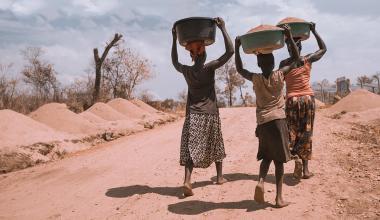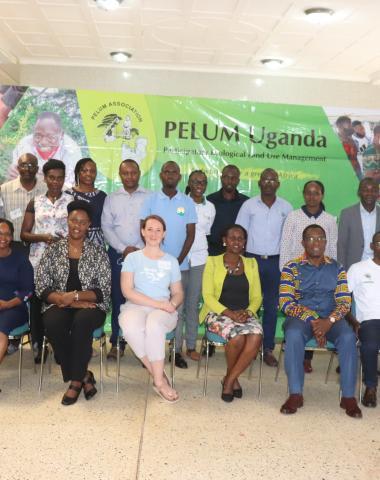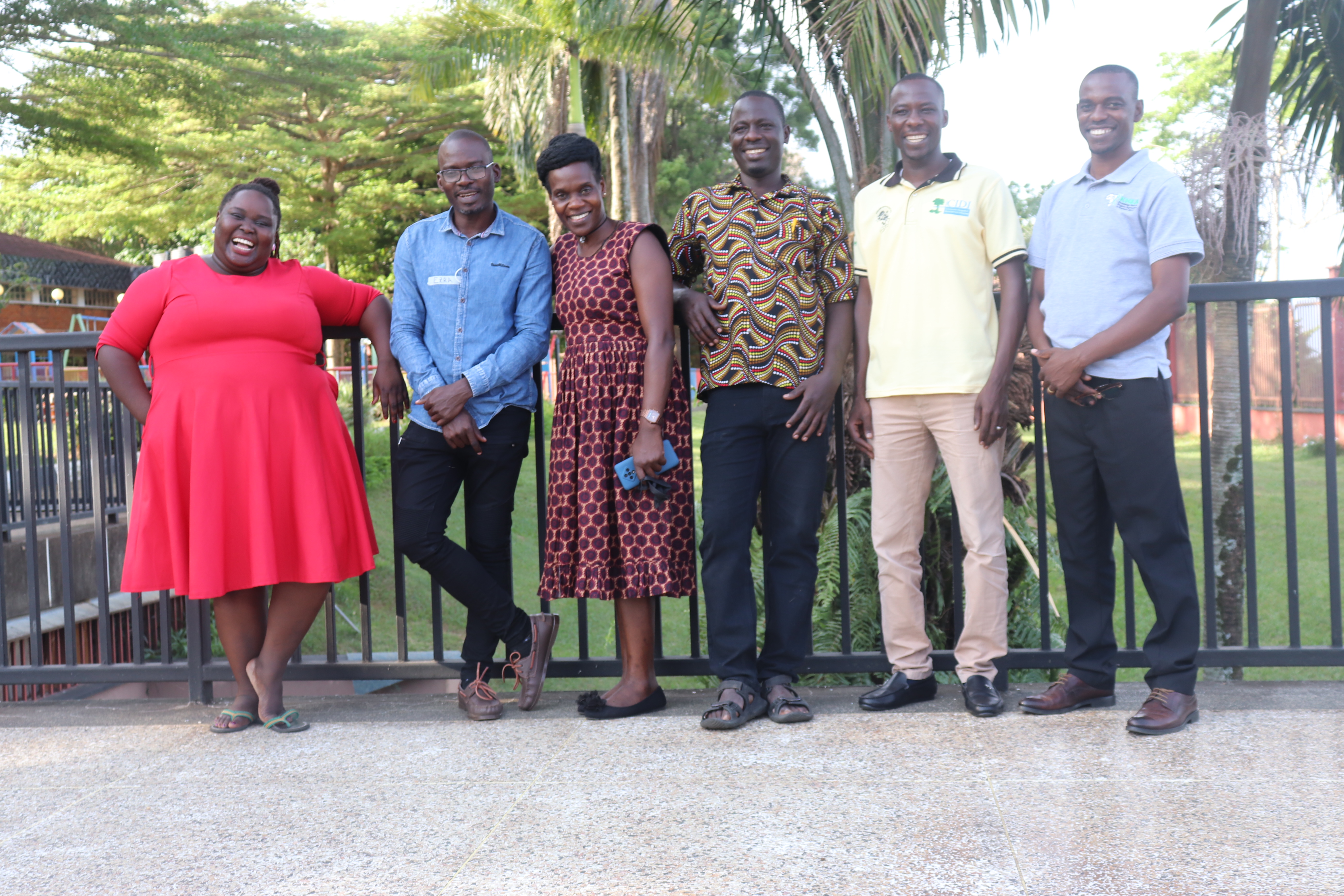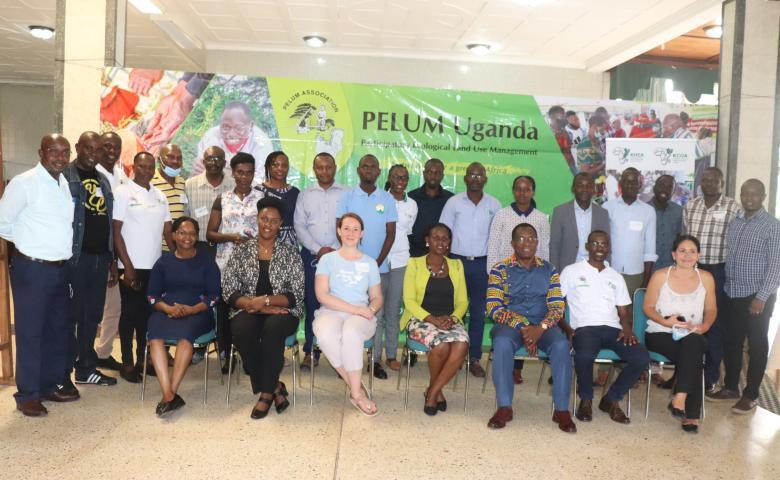IFOAM – Organics International was contracted to provide the Training of Teams of Facilitators (ToToF) in East Africa by Biovision Africa Trust (BvAT) in the frame of the GIZ-Global project Knowledge Centre for Organic Agriculture in Africa (KCOA).
Having completed the ToToF in 2020, IFOAM – Organics International continued to provide training on Participatory Guarantee Systems (PGS) in 2021. Furthermore, in 2022, the organisation worked with Lead Trainers from Kenya, Rwanda, Tanzania and Uganda to strengthen the quality assurance capacities in training the participants.
Quality assurance in training with a “cascade system” was identified as a priority by the Knowledge Hub of East Africa. Both the content and methodological approaches address different target groups:
- the trainers/multipliers/facilitators and the farmers,
- the institutional support needed,
- the backstopping,
- and the community building of agents of change.
They are all part of a complex knowledge system in which addressing the quality of the training is a strategic element to develop, implement and assess the performance of such capacity development efforts.
The quality assurance component kicked off with a survey to determine the support needed for this topic. The survey aimed at receiving feedback from Lead Trainers regarding the training process and also concerning pending thematic and methodological needs and interests, to continue strengthening their individual and group capacities.
A kick-off workshop was hosted on 29 March 2022 for strengthening quality assurance capacities in the Knowledge Hub East Africa. In groups per country, participants were asked to reflect on what quality assurance meant to them and if they had had the opportunity of implementing it in their training processes. Each country team shared with the plenary their thoughts, understanding and experiences around this topic.
The in-country meetings were held in April 2022 with the four countries, Kenya, Rwanda, Tanzania and Uganda participating.
The three in-country online workshops were organised with Lead Trainers and the objectives of these three-hour workshops were to jointly reflect on:
- Key principles that should guide quality assurance in the different training levels, considering the cascade system (Lead Trainers at the regional level, Lead Trainers on the country level with multipliers, multipliers providing training to farmer groups).
- How to operationalise those principles at the different training levels.
Based on their experience during these two years, Lead Trainers identified principles that are key to ensuring high-quality training processes, as well as strategies that are still missing to foster these processes at all levels. BvAT also participated in this interesting knowledge exchange process. This group's identification of the guiding principles (outcome and process) served as the foundation for formulating the face-to-face meeting's approach and provided pertinent information for the guide that will emerge from this process.
The quality assurance workshop was held from 25-27 May 2022 in Entebbe, Uganda. The countries did a country presentation of the outstanding elements of the process and the remaining challenges. In the afternoon, the Lead Trainers looked at going into a detailed analysis of the principles. This included reviewing and complementing the mapping of principles resulting from in-country workshops, according to the stages of the process (design, implementation and monitoring and evaluation). This was the preliminary brainstorming of the narrative and metrics for the principles.
On the second day, the Lead Trainers focused on diving into the principles with a keen focus on metrics and narrative. They looked at the principles of the design stage, the implementation stage and monitoring and evaluation. This all culminated in the creation of the Quality Assurance guide, thanks to the contribution of the Lead Trainers and KHEA officers from four countries, Uganda, Kenya, Rwanda and Tanzania who shared their experiences and knowledge for elaborating this guide.
Download the Quality Assurance Guide



